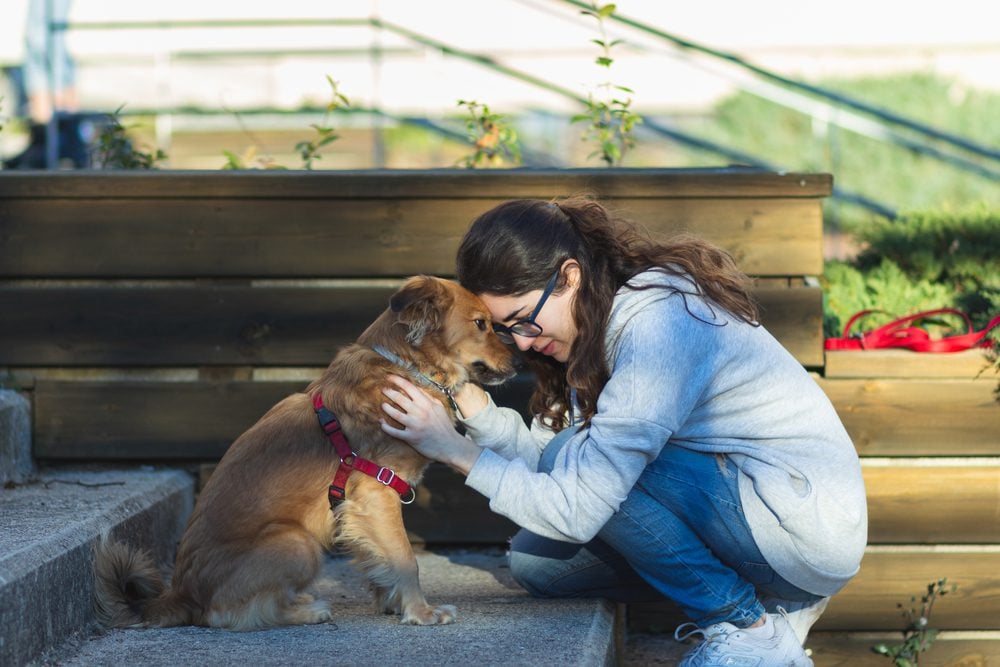
Dog Barking at Mirror: Understand and Address This Behavior
Share
Many pet owners, especially those who are diligent about their furry friend's mental and physical health, often find themselves perplexed by the curious case of their dog barking at the mirror. But why exactly does this happen, and how can we manage or alter this behavior effectively? This behavior is common across various dog breeds and can be attributed to a lack of self-awareness. Dogs do not recognize their reflection as their own image but instead view it as another stranger, sparking reactions ranging from curiosity to defensiveness.
Understanding the root of why a dog barks at a mirror is essential for any health-conscious pet owner. It can help you provide a more comforting environment and ensure that your dog isn't stressed or anxious due to such encounters. Furthermore, recognizing the nuances between playful barking and anxious or aggressive barking is crucial. Let's delve into the details of why this behavior occurs and how you can address it thoughtfully.

Why Does My Dog Bark at Its Own Reflection?
Many dog owners encounter this scenario where their loyal companion stares disdainfully or curiously at its own reflection. This kind of behavior can be linked to several underlying emotions or instincts.
Primarily, dogs do not have the self-awareness to recognize their reflection as themselves. This can lead to primal instincts kicking in, where they perceive the reflection as either a threat or a playful companion. According to small door vet , dogs reactions can vary significantly depending on their personality and past experiences. Moreover, this barking at reflections could stem from their inherent personality traits.
Is this Behavior Stressful for My Pet?
While some dogs might find their reflection amusing or intriguing, others might express signs of stress or alarm. It's crucial to observe your dog's body language when they encounter a mirror.
If your dog is wagging its tail and seems intrigued, then their barking is likely a playful gesture. However, if the barking is accompanied by growling, raised hackles, or attempts at attacking the mirror, this could signify stress or aggressive behavior. Ensuring your pet's mental health should be a priority. Hence, take note of how often these interactions occur and if they become a frequent source of distress.
Ways to Manage Your Dog's Reaction
To prevent undue stress on your dog, employing certain strategies can help. Here are some effective ways to address and manage your dogs reaction to mirrors:
- Desensitization: Slowly introduce your dog to mirrors in a controlled setting to help them become accustomed without triggering aggressive behavior.
- Positive Reinforcement: Reward your dog with treats or praise when they ignore the mirror or show calm behavior in front of it. Positive reinforcement encourages desired behavior without stress.
- Distraction: Engage your dog with toys or other activities during their mirror encounters to divert their attention away from their reflection.
Its worth noting that changing behavior might require patience and persistence. Sometimes, consulting a professional dog trainer can provide additional insights and techniques for discouraging this habit. You can also explore additional tips from the PetMD
The Importance of Monitoring and Engaging
Consistent monitoring of your dog's behavior around mirrors or other reflective surfaces can help in assessing changes or improvements. Whether it's through engaging distractions, providing a training routine, or strengthening your bond, understanding your pets behavior is rewarding.
Diving deeper into similar behaviors might also give you insights. For instance, check out occurrences such as dog barking at TV or reflections as they offer parallels to barking at mirrors.
When to Seek Professional Help
If the barking becomes incessant and is paired with behavioral issues like a sudden change in eating habits or increased aggression, it may warrant a professional assessment. Canine behaviorists or veterinarians can help identify any underlying issues and recommend appropriate interventions.
Additionally, exploring behavior patterns such as dog barking at shadows may provide a wider understanding of your dogs responses to similar triggers.
Conclusion
Dogs barking at mirrors is a curious behavior, one that points to the intricate psychological world of our loyal companions. By understanding the motivations behind it and adapting how we respond, we can help reduce stress and foster a harmonious environment for both dogs and their owners. It's a testament to the fact that understanding our pets contributes to their happiness and well-being, making them even more cherished members of our families.

FAQs
Why does my dog bark at mirrors but ignore windows?
Dogs might not react to windows if they perceive the views outside as familiar or non-threatening. Mirror reflections, however, can seem like unknown adversaries, causing more vocal reactions.
Can barking at mirrors indicate a health problem?
If the barking is obsessive or coupled with other behavioral changes, it might be worth examining for underlying health issues. Consultation with a vet is advisable in such cases.
How can I train my dog not to bark at mirrors?
Using positive reinforcement techniques, distractive methods, and desensitization can aid in reducing this behavior. In some cases, professional training might be needed for stubborn behaviors.
This article contains affiliate links. We may earn a commission at no extra cost to you.
